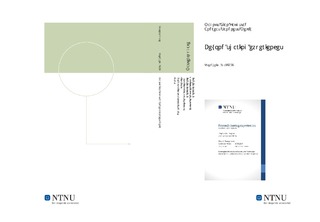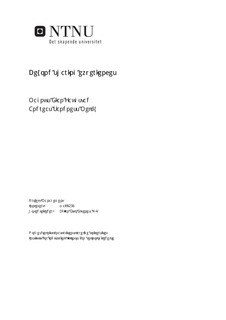| dc.description.abstract | The purpose of knowledge management activities and practice is to enhance the ability to utilize the knowledge and experiences that exist embedded in the organization. Knowledge management is absolutely essential for the success of knowledge intensive project-oriented organizations like construction, and management should arguably put adequate resources in motion to facilitate and foster knowledge utilization on an organizational level. Even so, knowledge utilization has no real value to the organization unless project-participants, who are in need of useful knowledge receive it, accept it, utilize it and also re-apply it. We have investigated four separate subjects relating to these issues and found that all of them provide substantial possibilities for enhancing knowledge utilization in this knowledge intensive context. Leadership behavior, Mentorships, Portal solutions and virtual communication are addressed separately both theoretically and empirically. Measures and actions are presented as recommendations and cover a wide angel of approaches. The recommendation section is related to how a construction firm might improve knowledge- planning, development and sharing of knowledge. Some measures are easy, others could be more challenging to implement. Management is ultimately responsible for deciding upon which measures to take into account and how they should be both prioritized and customized to fit the organization under scrutiny. Issues illuminated through literature do vary from real life experience, and even though most theoretical implications seem rooted in reality they do differentiate. In essence we narrow it down to whether or not knowledge management should be deliberately controlled by management or on the other hand more emergent and culturally handled. By purposely placement of reflection questions throughout the study we try to spark the readers thought processing and reflection, in addition to visualize that there aren t many rights or wrongs when assessing knowledge management. As for the project thesis we do not want to signal that we propose direct answers to our research question. We discuss the subjects, raise awareness, illuminate knowledge management issues and provide the reader with alternatives and measures based on both literature- and empirical research. | nb_NO |

